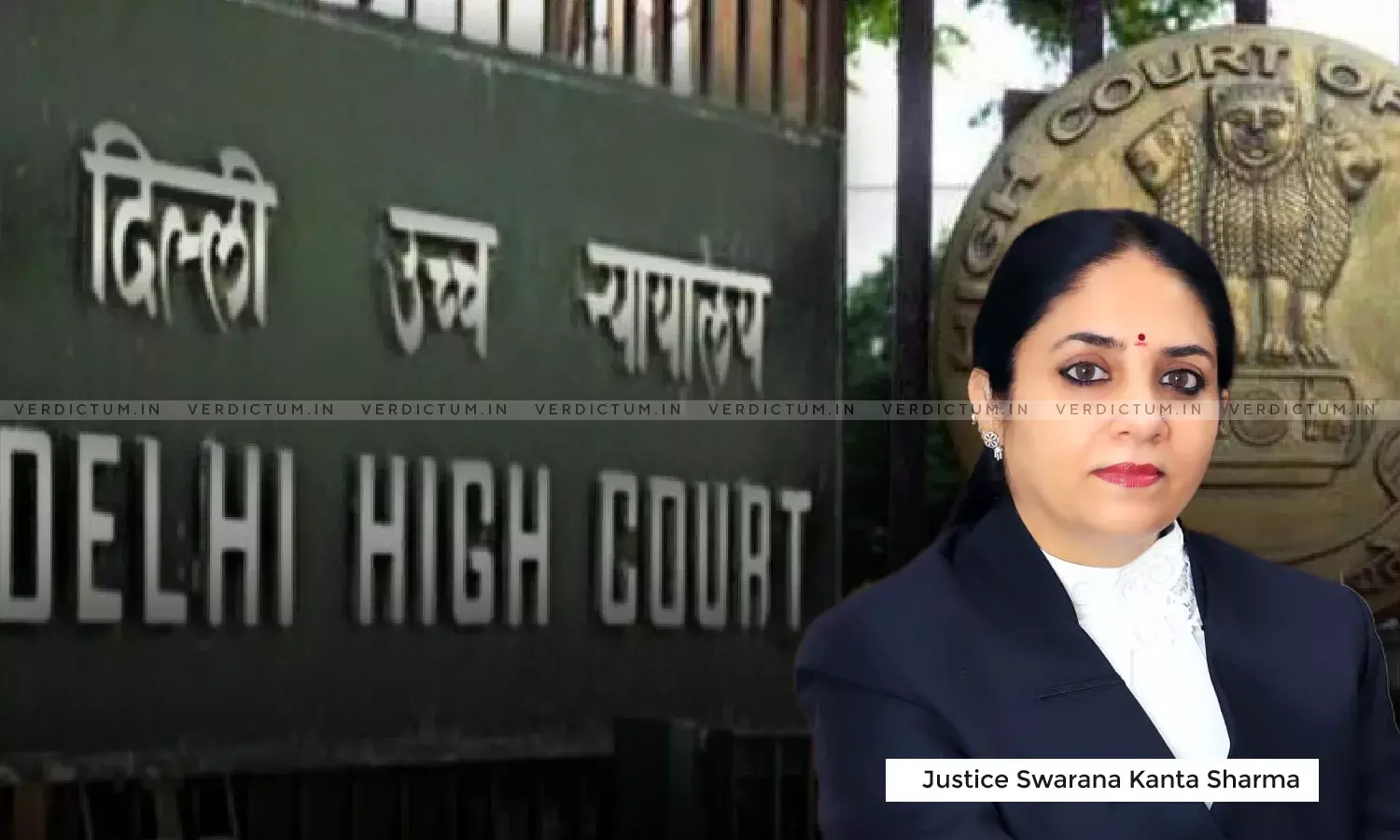Accused In Prisons Threatening Witnesses, Such Actions Strike At Core Of Protection Of Witnesses Who Are Eyes & Ears Of Judicial System: Delhi HC

Justice Swarana Kanta Sharma, Delhi High Court
The Delhi High Court has said that the accused in prisons are threatening witnesses and such actions strike at the core of protection of witnesses who are eyes and ears of judicial system.
The Court was dealing with a petition under Section 482 of CrPC filed by the State seeking setting aside of an order passed by the Sessions Judge with regard to an FIR registered for offence punishable under Sections 3(2) and 3(4) of Maharashtra Control of Organised Crime Act, 1999 (MCOCA) vide which the Trial Court dismissed the application for summoning and examining six witnesses.
A Single Bench of Justice Swarana Kanta Sharma held, “… it is crucial to highlight that the allegations against the respondents are that they were engaging in the act of threatening the witnesses of the case in question even while being lodged within the confines of jail. Such actions strike at the core of protection of witnesses who are the eyes and ears of the judicial system and are the only means of reaching just decision of a case and bring home the guilt of an accused. The Court also remains conscious of the fact that in case the witnesses who are protected under the law in a criminal case are threatened even from jail, it will directly affect the courts reaching a just decision and punishing the guilty. A witness under threat can never depose truthfully.”
The Bench noted that since the prosecution wants to bring on record the evidence of those witnesses who will prove the conduct of the accused of threatening the protected witnesses from the jail itself which will be relevant factor for deciding the case, dismissing the petition would result in miscarriage of justice.
Standing Counsel Sanjay Lao appeared on behalf of the petitioner while Advocate M.N. Dudeja appeared on behalf of the respondents.
Brief Facts -
An FIR was registered based on an application filed under Section 9 of MCOCA, following a complaint against the respondents. The complainant had alleged that the respondents had not only committed serious offences but they were also part of an organised crime syndicate, engaged in unlawful activities. Further, multiple FIRs were registered against the respondents, and the Special Judge had allowed the application. Thereafter, a chargesheet was filed against the accused.
Charges were framed against respondents for offences punishable under Sections 3(1), 3(2), 3(3), 3(4), and 3(5) of MCOCA and the petitioner/State had filed an application under Section 311 of CrPC for summoning and examining six witnesses. However, vide an order, the Trial Court had dismissed the application filed by the State under Section 311 of CrPC. Hence, the matter was before the High Court.
The High Court in the above context of the case observed, “This Court is of the opinion that every case is a quest of finding the truth and for that it has to follow the procedure as established by law. A criminal court has to follow the procedure set by the Code of Criminal Procedure, Indian Penal Code and Indian Evidence Acts, etc., as applicable in each case depending on the stage of trial. In this background, Section 311 of Cr.P.C. is of importance since it is one of the tools to attain the goal of reaching the truth of the matter which is the ultimate quest before any court of law in an adversarial system of adjudication.”
The Court said that the police officials could have filed a supplementary chargesheet, since the information and the relevant documents were in their possession in the year 2015 itself, which was permissible under the law as per Section 173 (8) of CrPC.
“… this Court reaches a conclusion that in the present case, the accused was threatening the protected witnesses of this case from the jail itself which is a relevant fact for deciding the present case to prove his conduct, as this conduct has direct relationship with the offence in question”, also said the Court.
Furthermore, the Court added that dismissing the petition would result in miscarriage of justice as the crucial evidence which should be before the Court to decide the present case will not be brought before it due to technicalities of law.
“In these circumstances, the present petition is allowed subject to the following conditions:
i. The witnesses sought to be summoned will be examined within one month and no unnecessary adjournment shall be sought by the prosecution in this regard.
ii. The statements of the witnesses sought to be examined and the documents relied upon sought to be proved through such witnesses will be provided to the learned defence counsel at least fifteen days prior to the date fixed for such examination of the witnesses to enable the learned defence counsel to effectively cross-examine such witnesses”, concluded the Court.
Accordingly, the High Court allowed the petition.
Cause Title- State of NCT of Delhi v. Mohd. Igbal Gazi & Ors. (Neutral Citation: 2023:DHC:6356)


